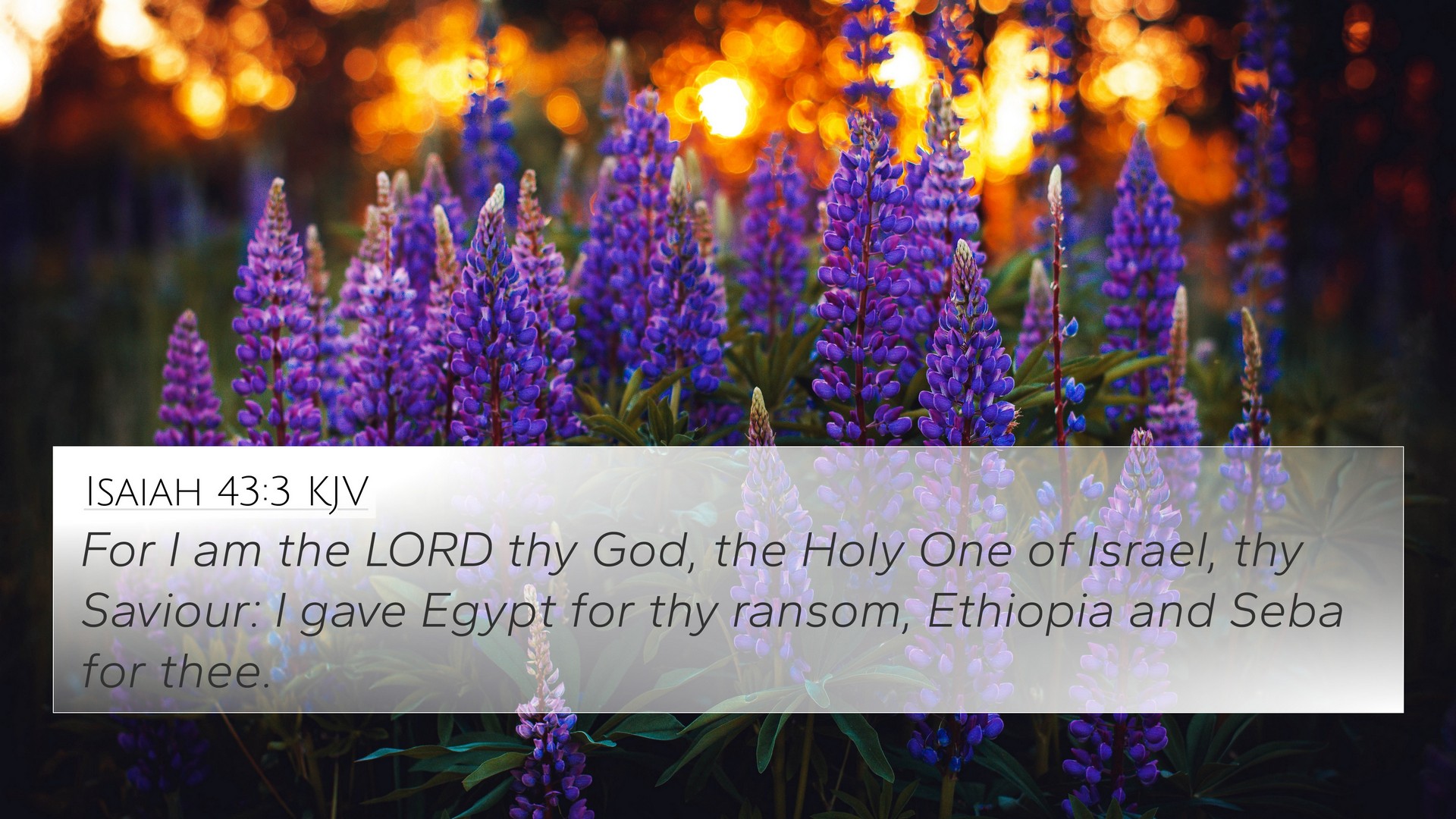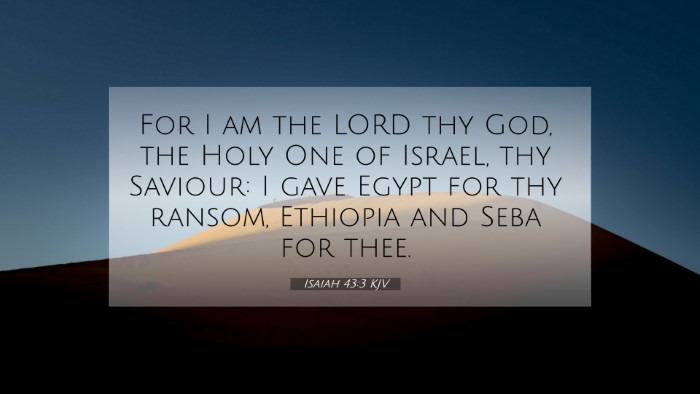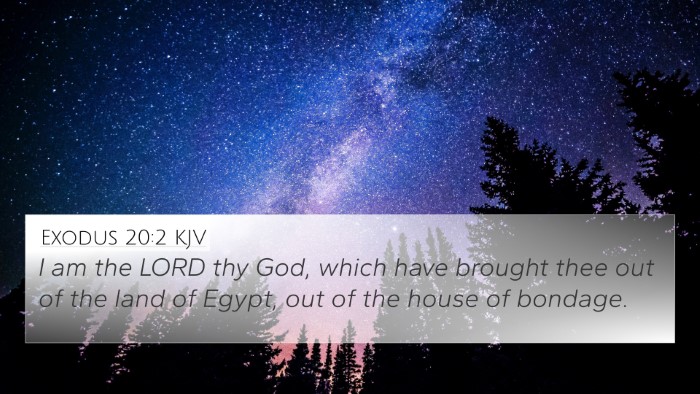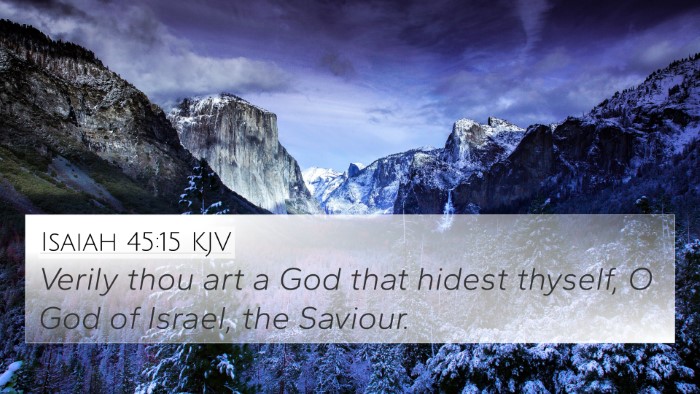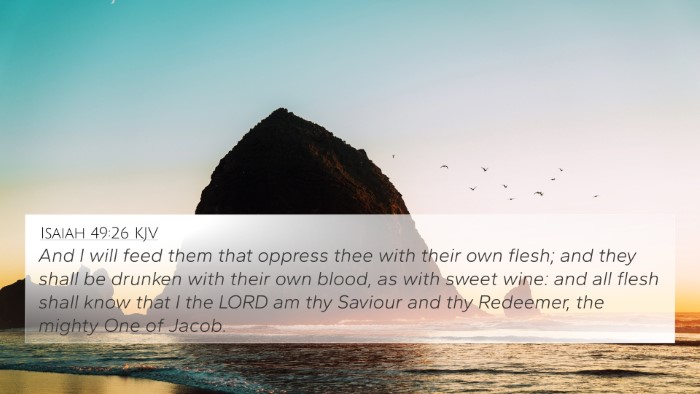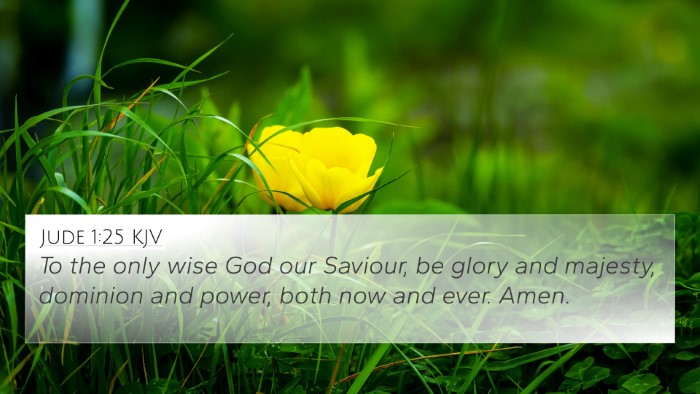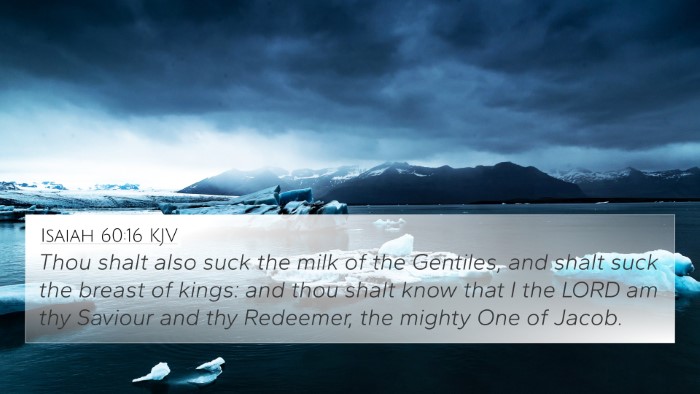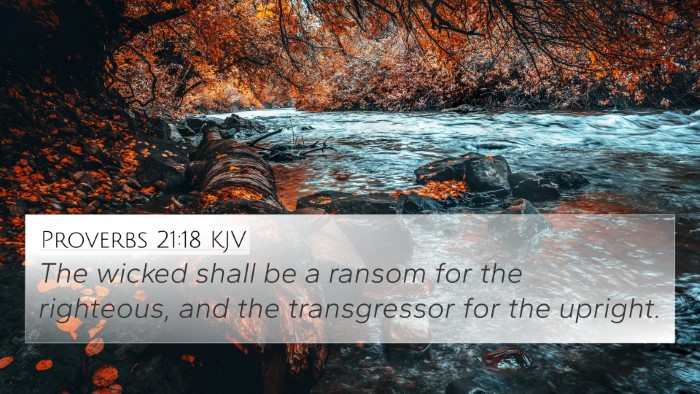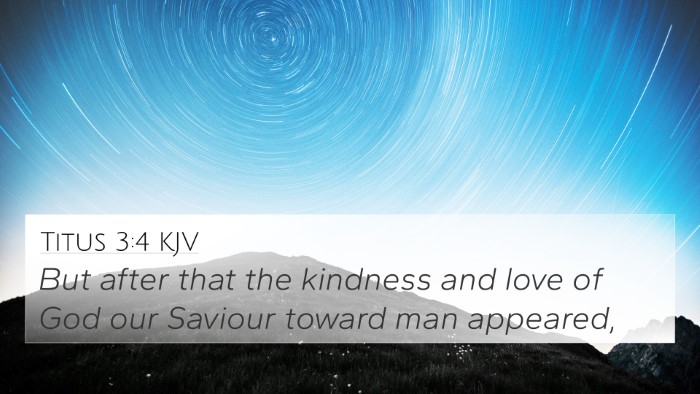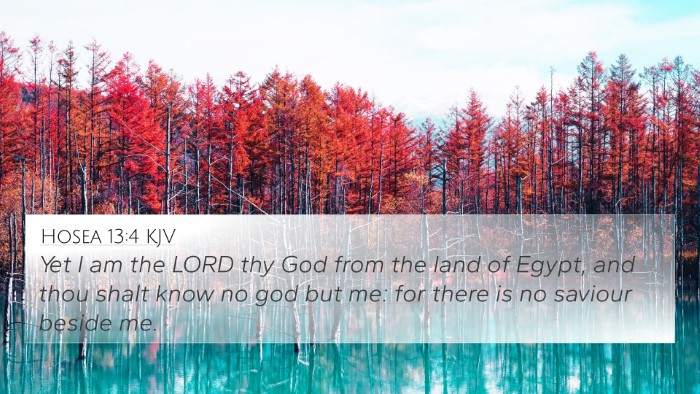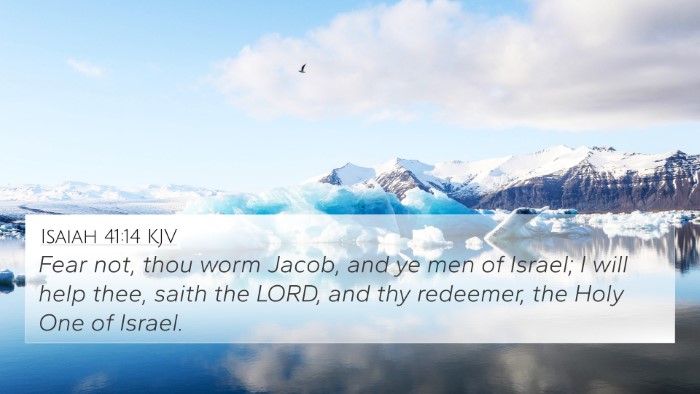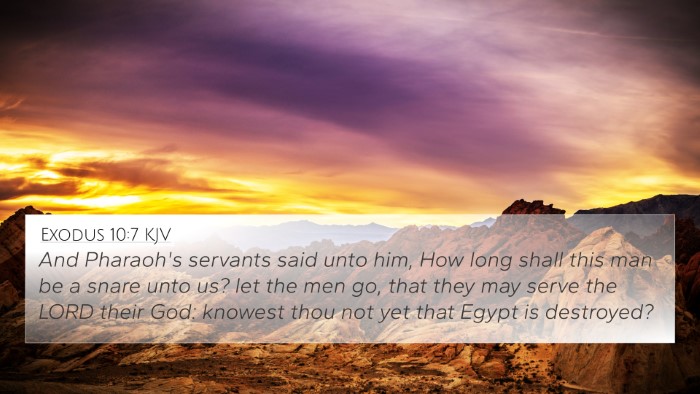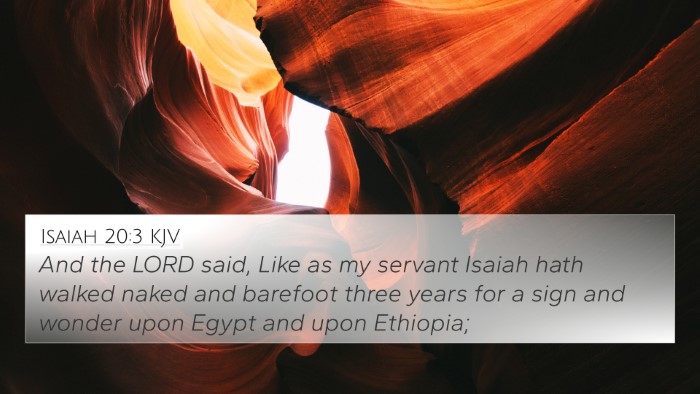Understanding Isaiah 43:3
Isaiah 43:3 states, "For I am the LORD your God, the Holy One of Israel, your Savior; I give Egypt for your ransom, Cush and Seba in your stead." This verse carries profound theological significance, affirming God's identity and His saving grace toward His people. Here, we explore the meaning of this verse through insights from various public domain commentaries.
Summary of Meaning
In this verse, God assures His people of His presence and salvation. The mention of Israel's deliverance is set in a context that resonates with their historical experience of oppression and God’s undeniable mercy. The Lord emphasizes His sovereignty and redemptive purpose, indicating that He’s willing to give nations for the sake of His people, showcasing His unparalleled commitment to their well-being.
Insights from Commentaries
- Matthew Henry: Henry reflects on the comfort and assurance provided in this verse. He elaborates that God’s covenant with Israel is reaffirmed through reminders of His past acts of deliverance, encouraging believers to trust in His continual support and salvation.
- Albert Barnes: Barnes notes God's self-identification as "the Lord your God," highlighting the personal relationship between God and His people. He emphasizes that God's intervention is not merely transactional; it embodies a deep love and care that parallels the desperate need of the people facing oppression.
- Adam Clarke: Clarke provides a critical analysis of the historical implications of the terms "Egypt," "Cush," and "Seba." He argues that the mention of these nations signifies the lengths to which God would go to secure the safety and redemption of Israel, underscoring His might and willingness to act for their deliverance.
Bible Verse Cross-References
Isaiah 43:3 relates to several other passages throughout Scripture, providing deeper insights through thematic connections and parallels:
- Exodus 3:14: God's self-revelation as "I AM" reassures the Israelites of His eternal presence.
- Isaiah 41:10: Promises of strength and help from God bolster the theme of divine support in times of fear.
- Psalms 107:2: A call for the redeemed of the Lord to declare His works further emphasizes the theme of salvation.
- Isaiah 49:25: Here, God promises to contend with those who oppose His people, showcasing His protective role.
- John 10:11: Jesus identifies Himself as the Good Shepherd, reflecting the theme of divine protection and care for His flock.
- Romans 8:31: The assurance that if God is for us, no one can stand against us mirrors the promise of divine advocacy found in Isaiah.
- Revelation 7:14: A vision of salvation for God's people resonates with the themes of purity and redemption introduced in Isaiah 43:3.
Connections Between Bible Verses
The connections between Isaiah 43:3 and the associated verses emphasize several theological themes:
- The Identity of God: Repeated affirmations of God's identity across these verses serve to strengthen the believer’s understanding of who God is—our Savior and Shepherd.
- Divine Protection: Many of the referenced verses speak to the protective nature of God in the lives of believers, a recurrent theme in the Bible’s narrative.
- The Promise of Redemption: Both Testaments honor God's commitment to redeem His people, which is foundational for Christian doctrine.
- Provision and Sacrifice: The sacrificial giving to rescue His people, as mentioned in Isaiah, echoes Christ's ultimate sacrifice for humanity.
How to Use Bible Cross-References
Utilizing cross-references enhances one’s understanding of Scripture and encourages a deeper study of Biblical themes. Here are some methods:
- Bible Concordance: This tool helps locate specific themes and connects related verses across the Scriptures.
- Cross-Reference Bible Study: This method involves comparing verses that share the same themes to gain insight into their meanings.
- Bible Cross-Reference Guide: Using a guide can simplify the process of finding relevant verses that complement a particular study or sermon preparation.
- Identifying Connections Between Old and New Testament: Understanding themes that transition from the Old to the New Testament is crucial for comprehensive Bible study.
Conclusion
Isaiah 43:3 is a profound reminder of God's character, His love for His people, and His willingness to act on their behalf. The insights gained from various commentaries, coupled with valuable cross-references, provide a rich understanding of the text. This interconnectedness seen through thematic Bible verse connections emphasizes that God’s message of redemption and solace echoes throughout the Scriptures, reinforcing the core of Biblical faith.
